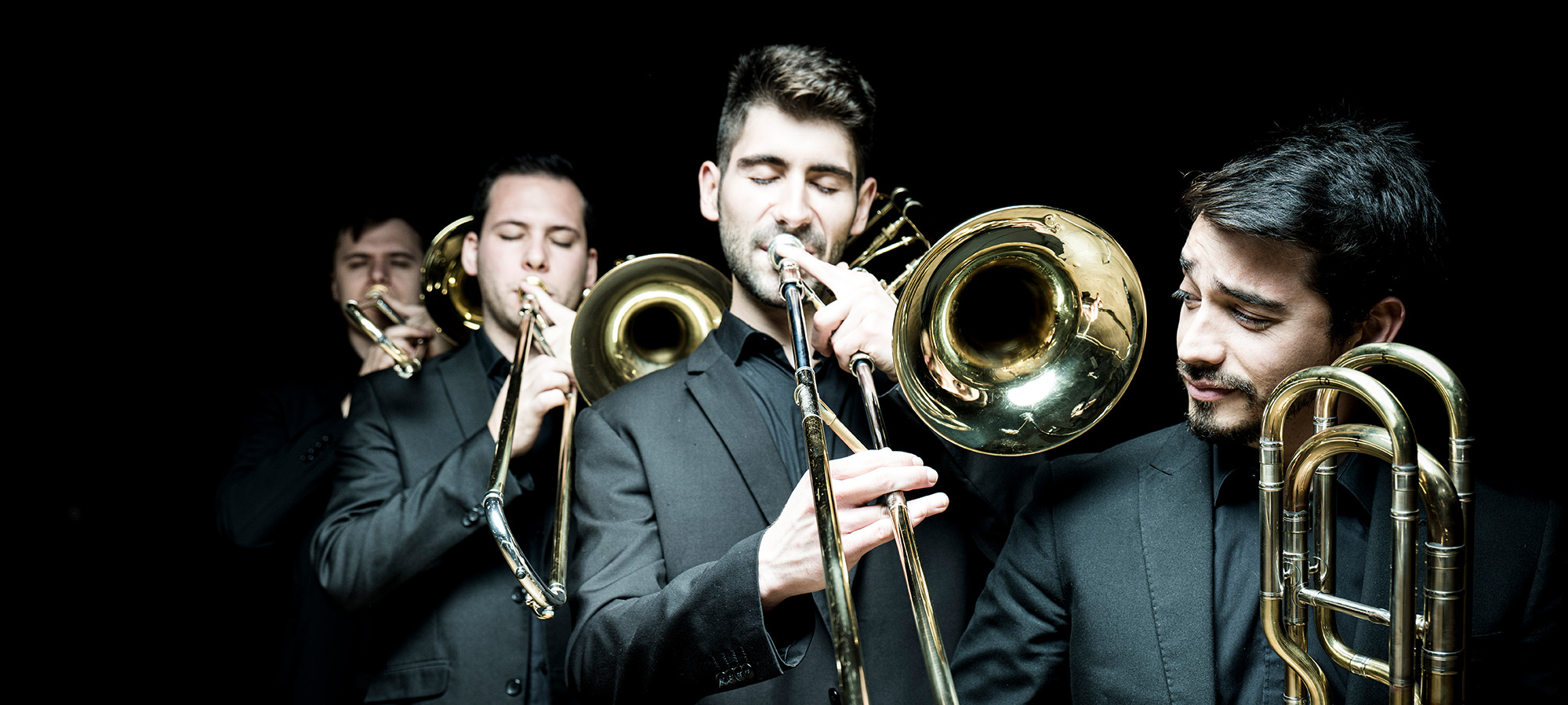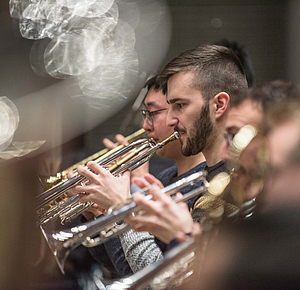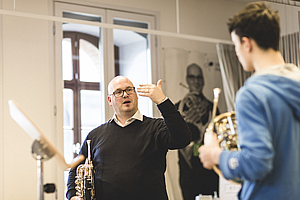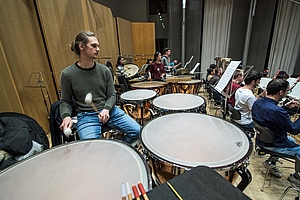Department of Wind / Brass Instruments and Percussion
Welcome to Weimar, where the Church musician Carl Müllerhartung founded Germany's first "Orchestral School" in 1872, which has been called the "University of Music FRANZ LISZT Weimar" since 1956.
Professors and teachers from almost all the leading German orchestras teach at the Department of Wind / Brass Instruments and Percussion. That alone means that students can enjoy an education with outstanding practical roots, but national and international contacts, along with an array of co-operations, strengthen this even further.
A homogeneous team of staff, ranging from internationally renowned soloists and orchestral musiciansthrough to pedagogues, pass their knowledge on to the students with passion and joy. The course does not only focus on teaching for the major subject: chamber music and ensemble music, handled in an interdisciplinary manner, are also core components of the course.
An additional point worth highlighting in the Department of Wind/ Brass Instruments and Percussion is the in-depth tuition offered on associated instruments, such as the Wagner tuba, contrabassoon, piccolo flute, piccolo trumpet, English horn etc., and on all of the smaller orchestral percussion instruments that have become a central element of modern-day tuition in wind/brass instruments and percussion.
The systematic, pedagogical work of the Department of Wind/ Brass Instruments and Percussion is endorsed by the large number of successful graduates who were able to establish themselves professionally both during and after their studies, or win prizes at international competitions.
Students can study well in a practically ideal atmosphere, with the premises, technical equipment and instruments leaving almost no desire unfulfilled. There are plenty of practice rooms in "our" Hochschulzentrum am Horn, where people can meet and exchange ideas. Teachers and students are in close contact with one another, the doors are open to anyone, and there is always a very collegial atmosphere.



